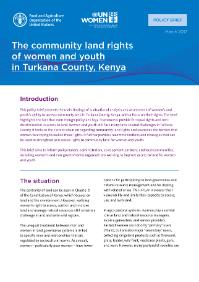Focal point
Location
The Food and Agriculture Organization of the United Nations leads international efforts to defeat hunger. Serving both developed and developing countries, FAO acts as a neutral forum where all nations meet as equals to negotiate agreements and debate policy. FAO is also a source of knowledge and information. We help developing countries and countries in transition modernize and improve agriculture, forestry and fisheries practices and ensure good nutrition for all. Since our founding in 1945, we have focused special attention on developing rural areas, home to 70 percent of the world's poor and hungry people.
Members:
Resources
Displaying 681 - 685 of 5074AquaCrop, the crop water productivity model
AquaCrop is a crop water productivity model developed by FAO to improve water productivity in rainfed and irrigated fields. It simulates yield response to water of herbaceous crops and is particularly suited to address conditions where water is a key limiting factor in crop production. AquaCrop was developed in 2009 and since then it has been used worldwide in different agro-ecological conditions.
Somalia 2017
Three years of drought have taken a heavy toll on the rangelands and water supplies that Somalia’s 7+ million pastoralists rely on to keep their animals alive and healthy. Livestock are their most important possessions – trade items bartered for food and other essentials; high-value assets used as collateral; the source of daily dairy protein. But malnourished animals do not produce as much milk. They cannot be traded, or only traded for less. And even minor illnesses can kill livestock weakened by a lack of food and water.
The Community Land Rights of Women and Youth in Turkana County, Kenya
This policy brief presents the main findings of a situational analysis and assessment of women’s and youth’s ability to access community land in Turkana County, Kenya, with a focus on their rights. The brief highlights the fact that even though policy and legal frameworks provide for equal rights and nondiscrimination in access to land, women and youth still face many land-related challenges in Turkana County. It looks at the current situation regarding community land rights and examines the bar riers that women face trying to realize these rights.
Agricultural policies, trade and sustainable development in Egypt
This study analyses Egypt’s agricultural sector and its performance over time, identifies constraints to increasing production and exports, and examines the key role of trade in inclusive agriculture development. After a review of current trends in the agricultural sector and trade policies, the study elaborates on the main pillars of Egypt’s current agricultural development strategy and the factors inhibiting growth of agricultural production and trade.
自由事先知情同意: 保护土著民族权利与造福当地社区的良好做法: 项目执行人员手册
自由事先知情同意是受国际人权标准保护的一项原则,同时也与自决权相联系。自由事先知情同意原则得到了《联合国土著民族权利宣言》、《生物多样性公约》及国际劳工组织《第169号公约》的支持 。本手册是粮农组织与若干协作组织自2015年7月启动协商进程以来的结晶本手册,是专为发展组织的项目从业人员设计的工具。











